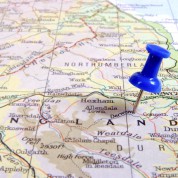Check restrictions at the camp site- most sites are dog friendly, however some do not allow dogs on their land. To save disappointment when arriving at a site it is a good idea to ring beforehand and double check.
Check local restrictions- Some land (including access land) may also have restrictions excluding dogs. In lambing and peak shooting seasons in particular this is the case. You can always call 0845 100 3298 and talk to the Open Access Contact Centre if you have any queries.
Check your rights of way- in most parts of the UK dogs can be walked on public rights of way (such as public footpaths) but must be kept under strict control. On paths that aren’t public rights of way you should check restrictions beforehand.
Clear up your mess- Just because you are out in sticks it doesn’t mean you can get away without cleaning up your dog mess. The UK allows for on the spot fines up to a maximum of £1000 for not cleaning up after dogs.
Take a lead- If you’re taking note of the UK rights of access guidelines, you must use a fixed lead no more than 2m (6ft) long from 1 March to 31 July and always near livestock.
Secure your dog at night- dogs make good watchmen but out in the wild there may be lots of distractions for them. To avoid your dog running after every stir in the night ensure to keep them safely secured while you are sleeping.
Get your dog a collar- Ensure to fit your dog with a collar containing your name, address and mobile number in case they do manage to get lost.
Do a health check- make sure that your dog’s vaccinations are up to date and don’t forget your dog when packing first aid supplies, they can be just as accident prone as children.


